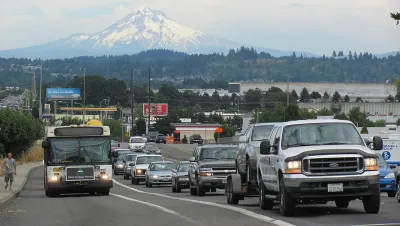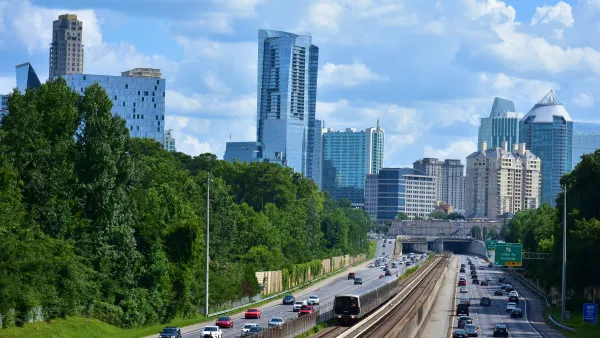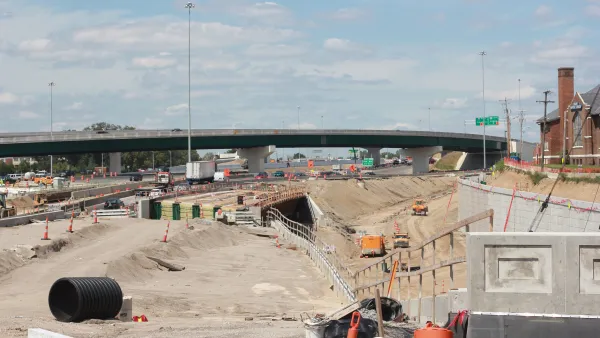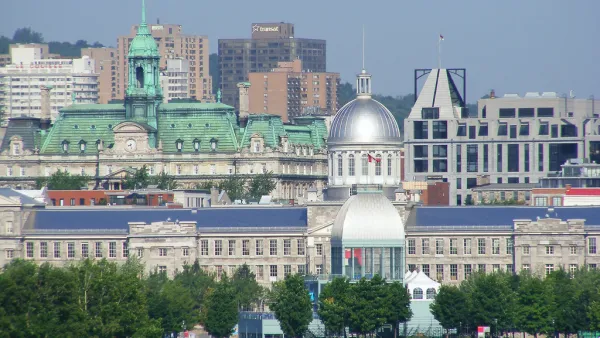The build out of mass transit and bicycle infrastructure hasn’t been the cure-all for shifting commuters from single-person autos to alternate modes of transit, as many had hoped. Maybe it's time we start looking at how to disincentivize driving.

Writing for The New Republic, Emily Badger has done the mental math, and at least for her taking mass transit makes more sense than driving to work in Washington, D.C. It's more convenient and less expensive. But in many parts of the country, driving remains the best alternative to get from here to there and will continue to be even as cities invest millions into alternate modes of transit. The problem is that there is no disincentive to driving, and the incentives to switch modes often come up short.
…relative to European cities, it is exceptionally hard in U.S. communities to implement real disincentives to driving.
There are ways to do it. We could reduce parking availability or raise parking rates. We could implement congestion pricing. We could roll back subsidies for gas and highways and public parking garages. We could tie auto-insurance rates or infrastructure taxes to how much people actually drive.
Badger notes that the imposition of disincentives would impact the poor the hardest. The solution may be a better combination of carrots and sticks, including programs like California's parking cash-out that makes not driving more attractive with a cash reward attached.
FULL STORY: America’s Cities Are Still Too Afraid to Make Driving Unappealing

Analysis: Cybertruck Fatality Rate Far Exceeds That of Ford Pinto
The Tesla Cybertruck was recalled seven times last year.

National Parks Layoffs Will Cause Communities to Lose Billions
Thousands of essential park workers were laid off this week, just before the busy spring break season.

Retro-silient?: America’s First “Eco-burb,” The Woodlands Turns 50
A master-planned community north of Houston offers lessons on green infrastructure and resilient design, but falls short of its founder’s lofty affordability and walkability goals.

Test News Post 1
This is a summary

Analysis: Cybertruck Fatality Rate Far Exceeds That of Ford Pinto
The Tesla Cybertruck was recalled seven times last year.

Test News Headline 46
Test for the image on the front page.
Urban Design for Planners 1: Software Tools
This six-course series explores essential urban design concepts using open source software and equips planners with the tools they need to participate fully in the urban design process.
Planning for Universal Design
Learn the tools for implementing Universal Design in planning regulations.
EMC Planning Group, Inc.
Planetizen
Planetizen
Mpact (formerly Rail~Volution)
Great Falls Development Authority, Inc.
HUDs Office of Policy Development and Research
NYU Wagner Graduate School of Public Service




























